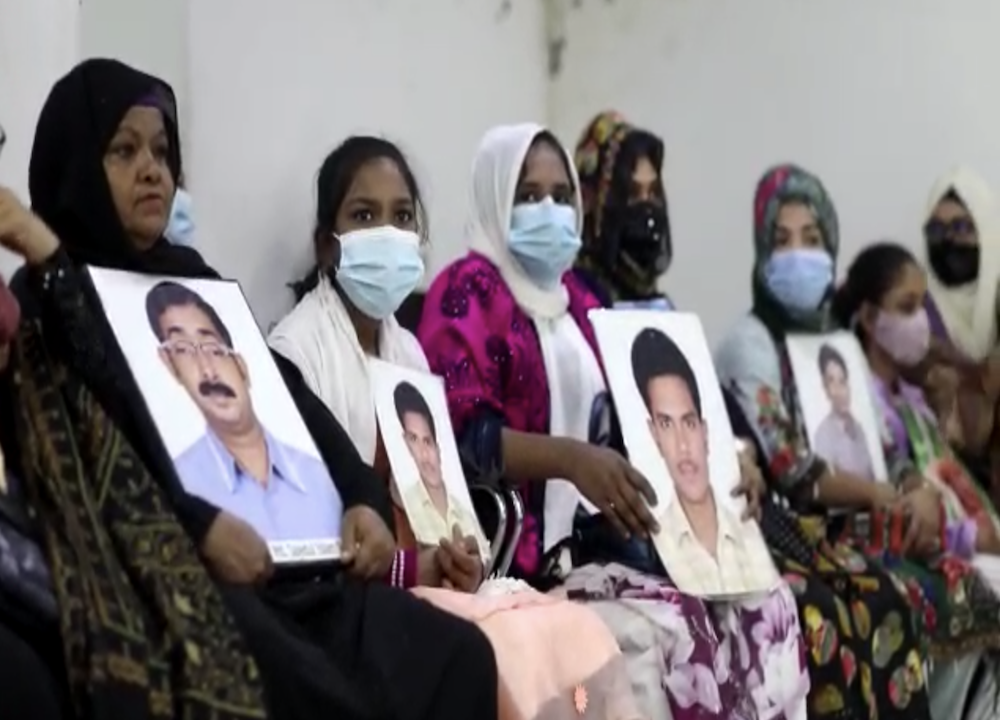Bangladesh government “appalled” at UN rapporteur letter
In its response to the UN rapporteurs, the government denies harassment and intimidation and questions UN working group’s reliance on Odhikar’s work on disappearances

The Bangladesh government has told three UN rapporteurs that it is “appalled” at their recent letter which had alleged that it was involved in a “smear campaign” against the UN Working Group on Enforced or Involuntary Disappearances (WGEID) and had targeted various organisations and individuals working on the issue of enforced disappearances in the country using “acts of intimidation and harassment”.
In its letter of response, sent on February 22nd 2023, the Government said that UN had repeatedly raised similar issues with them in the past and that it had responded to each of them, but to its “utter disappointment”, the UN rapporteurs “continued to repeat the same allegation without reflecting on the clarification provided by the government three times in the past.”
It goes onto say that: “the [repetitions] of the same allegation with same formulation of words would lead the government to assume that either there is a clear disconnect within the human rights mechanism, or the mechanism wishes to prejudge the accuracy and veracity of the allegations and, to directly intervene in the field to protect individuals from reprisals.”
The government letter asserts that it is right for it to prosecute Adilur Rahman Khan, the secretary of Odhikar and questions the credibility of the organisation itself in relation to “its work related to enforced disappearances within the country.”
The letter states: “If the WGEID continues to accept allegations from Odhikar without assessing credibility, political motivation, evidentiary standards and without considering the ‘minimum elements’ required for consideration of cases, it would only lead the WG to do injustice to their own valuable work for the protection of human rights that the member states entrusted them on.”
The letter was sent from Bangladesh’s permanent mission at the UN, but was unsigned.
The government also denies in the correspondence that Khan was subject to harassment at the airport stating that all that happened was that “the Special Branch Police at the immigration had his background checked thoroughly and allowed him to board and to depart accordingly.”
It also claims that there was no harassment of the coordinator of Maayer Daak, Sanjida Islam Tulee, stating that police officers “did visit her residence as a part of regular security procedure with a view to ensuring safety of the visiting [US] Ambassador who was scheduled to meet a number of unknown civilians at the residence of the ‘Maayer Daak’”.
The letter stated that those congregating outside Tulee’s house were not government party supporters, claiming that “they belonged to an NGO ‘Mayer Kanna’, which is a platform comprised of family members of some 1200 former officers and staff of Bangladesh Air Force who were sentenced to death after facing summary trial and execution during the military regime of military ruler and the founder of the BNP General Ziaur Rahman, back in 1977. [...] When they heard the news of US Ambassador’s visit to Ms. Tulee’s house, they gathered in front of Ms. Tulee’s house to handover a memorandum to the US Ambassador in their pursuit to seek justice for their family members.”
In relation to the claim that “people were hired by the government to collect photos of female relatives of victims of enforced disappearances, photoshopping and publicising them in social media platforms to portray them as ‘prostitutes,’” the letter states that “the government does not wish to pay attention to such unsubstantiated claims” and the working grouop should “ask its source what was holding back the victim to resort to the Digital Security Act 2018 that ensures respect of the rights or reputations of people and criminalizes spread of defamatory information in cyber space?”●